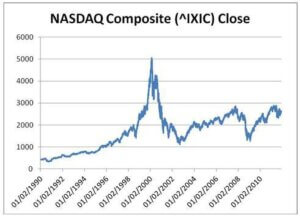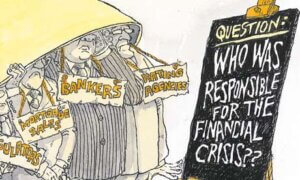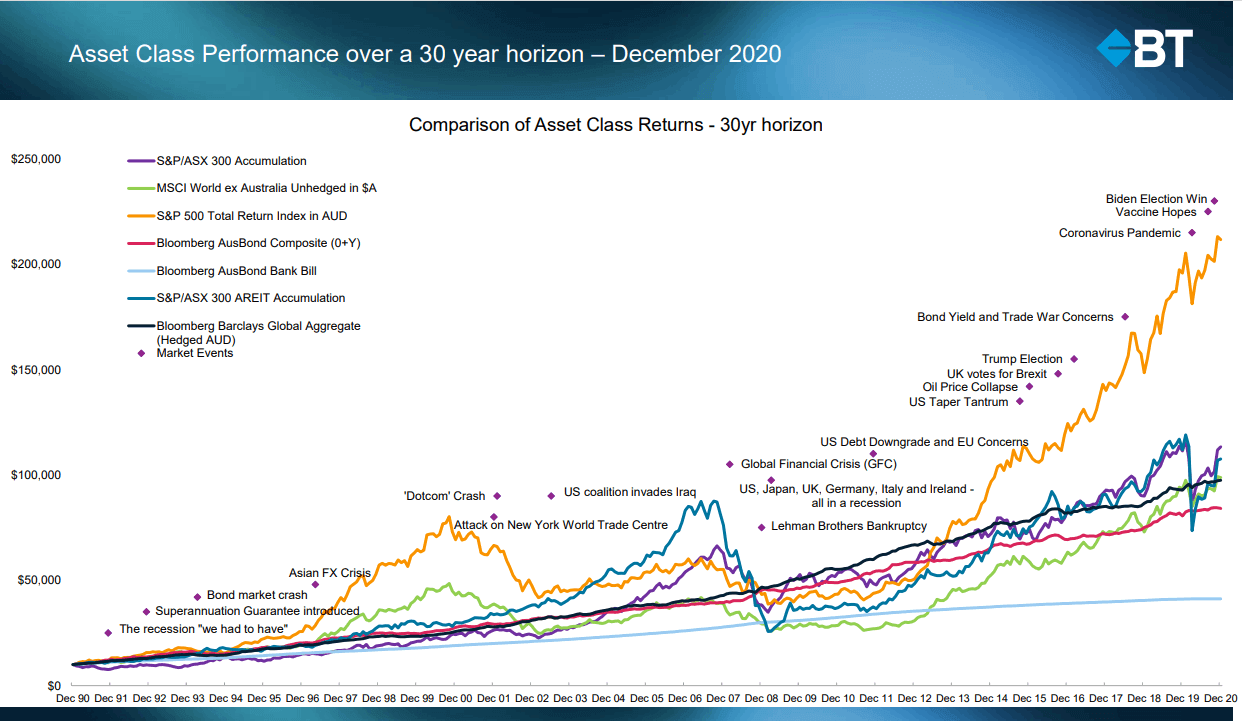Investment anxiety is a common phenomenon, especially amongst those who are new to the world of investing. Seasoned investors can also succumb when caught in a steep market correction for the first time in their investor experience. It can also strike seasoned investors when their concurrent personal circumstances have changed adversely. Picture this ….
Awakening one morning the news breaks that there has been a significant overnight fall in international sharemarkets values. You have accumulated a tidy sum in your investment portfolio and are unsure how your wealth will be affected. Whether you investments are in Super or outside Super, how will you react? Some emotions will include panic, fear about the consequences, anxiety about your financial future!
As a client of Continuum Financial Planners, your first reaction should be to see what message we have sent you. The next is to either –
- sit back and relax, confident of the advice you have been given, or
- contact your adviser at our office and get the reassurance you surely need at this time.
If you haven’t yet engaged our wealth management services, even this event may not be too late.
Contact ContinuumFP if your investment anxiety heightens
The primary message that should be taken from this article, is to recognise investor anxiety, and manage it. Firstly, understand your investment strategy, confirm that your investment strategy is based on factors that remain relevant to your circumstances. Next, reaffirm that you have been realistic in the assessment of your risk aversion profile.
In this article, we show that even significant market corrections and reversals, recover over time. We reiterate that this validates the expression that ‘time in the market’ matters more than ‘timing the market’. Strategy, and time, provide more assured progress toward targeted wealth accumulation.
Since we entered the twenty-first century, investors have faced a number of significant market volatility events. During these events, exercising ‘natural instinct’ and selling, would have set their wealth accumulation goals back by many years.
Those events include:
- the ‘dot com’ bubble that started during the late-1990’s and collapsed in 2001
- the Global Financial Crisis (The GFC) that started in late 2007, deepened during 2008 and bottomed in early March 2009
- the Covid-19 crash that happened in late-March 2020 on the consequences of the coronavirus that started (around) December 2019. That pandemic spread globally during February 2020 and culminated in a market capitulation in March.
Each of these events invoked different reactions by the community at large, national economies, and investors directly: investment anxiety prevailed at a high level in the investor community.

Investment market bubbles
Depending on where you stood as an investor during the ‘dot com’ bubble, there was a lot of headshaking happening as ordinary folk tried to understand how a company could value up the way the markets had done, on the basis of having a larger database of people interested in what they were doing (or followers), but very few of whom were paying any money to the company to use their ideas.
When the bubble burst, those companies lost considerable value, some went out of existence – and the market more broadly lost the trust of some investors and lost value by contagion. (This event has been referenced as ‘the tech bubble’ in the financial literature following the event. One might say that the bubble occurred because the over-exuberance for an industry that was recognised as being of eventual value just got ahead of the fundamentals that would in today’s markets, be seen as ‘normal’.)

..and the GFC
The GFC had a long period of festering as a blight on the global financial system as investors and regulators tried to make sense of what was happening: the Wall Street wolves were playing havoc with security offerings; the research houses that rate the risk attached to various investment products ‘fell asleep at the wheel’ – or were ‘mesmerised in the headlights’ (like the proverbial deer); and trusting economists, funds managers, advisers and investors seemed locked into the pot with the frog being slowly, but inexorably, to the boil.
The event marked with the collapse of Lehman Brothers in late 2008, and continued as everybody scrambled to retain what they could of their wealth. Central Bank and government programs around the world flooded the financial system with money as we added terms such as QE (quantitative easing), helicopter money, lower for longer interest rates to our financial vocabularies. This event was the most troublesome of the major Bear markets experienced in a century, as it was induced by market manipulation, greed, and unwarranted trust and optimism in the creators of markets (and investment products).

… then the pandemic
The most recent event, unlike the first two that were brought on by investor emotions (in the case of the tech bubble, over-exuberance; and in the case of the GFC, greed and misplaced trust), the investment market crash and economic recession was as a consequence of the exogenous shock of a health pandemic that threatened the lives and livelihoods of people globally. Whilst nobody was ready for the economic disaster that threatened under a COVID-19 pandemic, central banks – and governments – globally, responded in similar ways, albeit to greater or lesser extent. The economic and markets consequences of this event are still paying out – but rays of hope are shining more brightly as vaccines are developed, approved and administered to the global population.
Some responses
A consistent response of some experiencing investment anxiety in each of these events has been the sudden cashing out from the market: the first rounds of cashing out come from either –
- Participants who are so heavily geared that they urgently need to generate liquidity in their portfolio to service debt; or
- Those who panic, fearing that their portfolio will be decimated if they don’t get out quickly.
Once the market trends are established with the selling pressure created by these groups, there is often an exodus from the markets, as more participants question their portfolio/ investment strategy. These folks encourage the market Bears. On the other side of these trades, are participants who exercise control and constraint in their investment philosophy and buy into investment assets that have fallen below their perception of the value of those assets.
Analysis
In each of the events outlined above, market falls of more than 20% occurred (the benchmark at which the markets are said to have entered Bear territory) – and in the latter two, the falls exceeded 30% before the Bulls re-entered the markets.
The following Chart shows market performance over the past 30 years. It is similar to charts you will have seen many times if you have followed our Blog and/ or if you have been an advised investor for even just a few years. Some important things to observe from it are –
- Time in the market is critical;
- Regardless of the correction event, patience will allow your portfolio to recover;
- Timing entry to the market can be positive for a portfolio, but not critical to its absolute success; and
- Well-structured investment strategies, consistently applied, will serve you well.

The lesson to be taken from this, is to approach investing strategically. Whilst it may appear self-serving for a financial planning firm to be saying so, there is plenty of publicly accessible survey material (including that published by ASIC, the regulator for corporations and the securities markets) to support that advised investors are at the one time:
- More comfortable with – and confident in – their investment portfolio; and
- Are generally better off (by up to 4% per annum) than those who are unadvised (and that includes members of default, age-based investment strategy superannuation funds – industry, or retail).
A couple of articles in ContinuumFP’s website Blog1 have reported on these surveys (and some have links to the published reports).
Investment anxiety overcome by Investment Strategy
Investment is an art; and it is a science: investment advising/ financial planning is a heavily regulated and closely monitored process.
Since 2012, the Federal government has been progressively overhauling the investment/ financial advice industry; and in the wake of the catastrophic experiences of investors as a consequence of the GFC in the hands of unscrupulous advisers, has been coaxing the industry to the path to professionalism. This is a path that your ContinuumFP advisers are comfortable with: the Principals of the firm are academically qualified and members of professional bodies such as CPA Australia and the Financial Planners Association and have subscribed to Codes of Ethics and applied a philosophy of client interests first since we started the company in 20032.
Strategic Investment Advice from a registered financial planner involves the following processes/attributes:
- Establishing a ‘business’ relationship between the investor and the adviser;
- Determining the relevant financial resources to be applied;
- Enunciation of SMART financial goals and objectives – with reasonableness and timeframes important aspects of such goals;
- Understanding the investor’s risk aversion profile;
- Expressing advice and reporting in clear, concise communications; and
- Respectful, professional conduct at all times.
The end result from applying these measures is an advice process focused on the best interests of the investor. We do this by targeting the attainment of clients’ financial goals and objectives, documented in a way they understand. Strategies are documented in a way that gives confidence, regardless of the short-term impacts of the markets3.
The ContinuumFP Philosophy at work for you
There is no need for investment anxiety to be part of your investment experience! Our experienced advice team is ready to engage with you and share the service experience enjoyed by our existing clients. They appreciate us exercising our mantra that ‘we listen, we understand; and we have solutions…’. We caringly deliver personalised, professional wealth management advice – in your best interests.
To minimise your risk of experiencing investor anxiety, contact our office and arrange to meet with one of our team. Phone 07 3421 3456, or complete the website Contact Us form – and we will respond promptly.
(This article was posted in February 2021: it will be refreshed/ updated from time to time as required.)
- Some supporting ContinuumFP Blog articles include ‘Advised investors secure in their wealth’ (2011). Also see ‘Investor Confidence Survey’ (2011);‘Advised investors value advice’ (2013); and ‘The Value of Advice confirmed’
- From time to time, we collect ‘testimonials’ from clients and other stakeholders with whom we interact. You may like to see some of those comments on the About Continuum/ Clients Say Page.
- One example of our support for clients during investment anxiety was published – see ‘Investment Markets Anxiety’.


